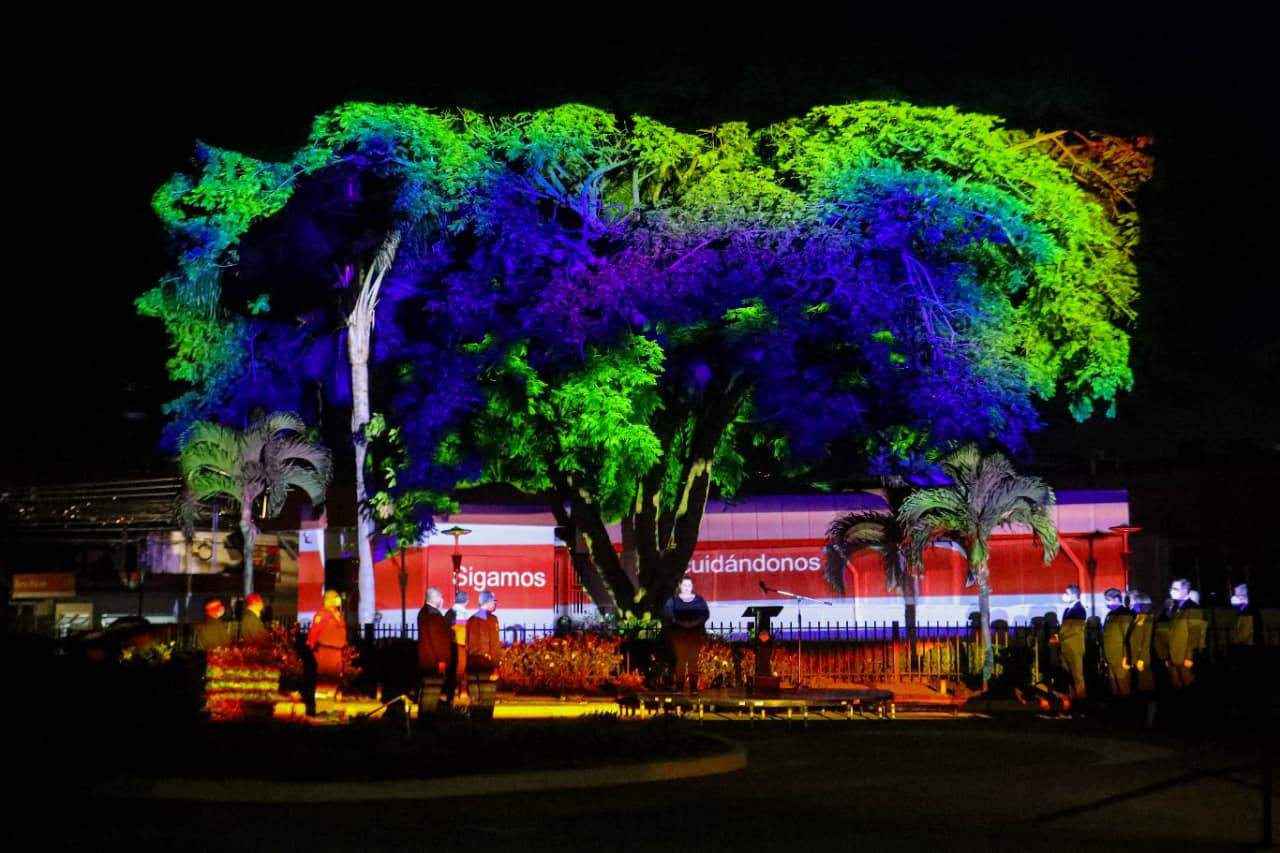The Costa Rican government on Sunday aired a national broadcast in commemoration of the anniversary of the first coronavirus case confirmed within the national territory.
You can watch the video below, and an English summary of the broadcast follows:
****
“We have confirmed the first case of coronavirus in Costa Rica”: These were the words of the Health Minister, Daniel Salas, to indicate the SARS-CoV-2 virus had arrived in the country. A year has passed since then, and even before that moment we were already preparing.
Planning for the imminent arrival of the virus began with the activation of the Emergency Operations Center (COE), which has been maintained during the more than 365 days of the pandemic, for decision-making with a technical, scientific, economic and health focus.
After confirmation of the first cases of COVID-19, on March 16, the government declared a State of Emergency throughout the national territory, activating health protocols and measures necessary to prevent the spread of the spread of the virus and save lives.
“The moment Dr. Daniel Salas announced it, the first case scared me a lot — more than just fear, but panic and pain. At that moment, I hoped that God would accompany us,” recalled Yanory Alvarado, 67, of her emotions a year ago.
In order not to repeat scenarios seen in other countries, a plan to expand hospital capacity throughout the country was initiated to guarantee immediate care in the health system.
In just 11 days, the National Rehabilitation Center was transformed into the Specialized Care Center for Patients with COVID-19 (CEACO), which still receives patients from all over the country for moderate, severe and critical care.
The opening of the East Tower of the Calderón Guardia Hospital was accelerated and prepared to treat patients with the new coronavirus, the National Psychiatric Hospital was adapted; in addition, the capacity of beds of Intensive Care Units (ICU) for COVID-19 was increased from 24 in March to 359 in a matter of months.
At the time of greatest uncertainty, thousands of people — health personnel, police, firefighters, first responders, transporters and essential workers — stepped forward and placed themselves in the front lines against the emergency.
The pandemic has had serious economic and social implications. Before this, the entire country has united to move forward: Government, the Legislative Assembly, private enterprise, social sectors and civil society. Thanks to this coordination, the country guaranteed access to health, education and food.
The Bono Proteger was created that gave economic relief to 724,000 people whose income was affected by the reduction or suspension of their working hours.
The country achieved the repatriation of more than 9,000 Costa Ricans, from 103 different countries and territories, on virtually all continents, some from destinations as far away as Guinea-Bissau, Namibia, South Sudan or Tanzania.
To promote the gradual and health-controlled reopening of our economy, we developed the shared model, “Costa Rica works and takes care of itself,” a work in conjunction with local governments, private enterprise, organizations and various social sectors.
On December 23, Costa Rica became the seventh country in the world to receive the vaccine against COVID-19. We have received more than 386,000 doses, and applied more than 200,000 vaccines. This is the most important tool to protect public health and at the same time boost the country’s economic recovery.






